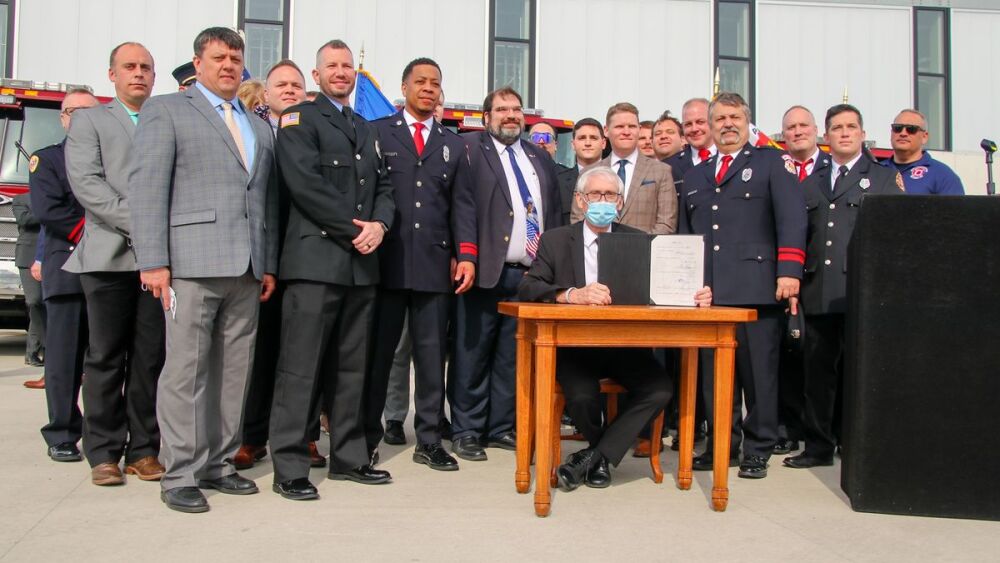Mitchell Schmidt
The Wisconsin State Journal
MADISON, Wis. — Gov. Tony Evers on Tuesday signed into law a bipartisan bill to allow first responders including police and firefighters to receive worker’s compensation if they’ve been diagnosed with post-traumatic stress disorder.
During a bill signing at Madison’s Fire Station 14, Evers said the bill makes critical changes to the state’s worker’s compensation laws to provide benefits to public safety officers who are diagnosed with PTSD by a licensed psychologist or psychiatrist.
“This bill ensures that they can take care of themselves, get treatment, cope, get the help they need to serve their communities and live healthier lives for themselves and their families,” Evers said. “Many times post-traumatic stress goes unseen but today we’re going to help make sure it doesn’t go unheard.”
Currently, public safety officers must prove that PTSD was caused by unusual stress compared with what their co-workers regularly experience on the job to claim worker’s compensation. The new bill only requires a diagnosis from a licensed professional that does not need to be based on the officer suffering greater stress than co-workers.
The bill limits claims to no more than 32 weeks after the injury is first reported and restricts compensation for such a diagnosis to three times, regardless of a change in employment status.
“PTSD can be treated effectively and allow those affected to return to protecting and serving the public,” bill author Sen. André Jacque, R- De Pere, said in a statement. “It is critical that the men and women we depend on as first responders who are affected by PTSD have access to this treatment.”
The bipartisan measure has been supported by the Wisconsin Professional Police Association, Professional Fire Fighters of Wisconsin, Wisconsin Chiefs of Police Association, Wisconsin Sheriffs and Deputy Sheriffs Association, the Badger State Sheriffs’ Association, Wisconsin Manufacturers and Commerce and the AFL-CIO.
“Mental health treatment is an integral component of every person’s health care, and we have seen the need for treatment for first responders in particular,” Assembly Minority Leader Gordon Hintz, D- Oshkosh, said in a statement. “Access to mental health treatment can be instrumental in helping them to cope with the intense and difficult aspects of their work.”
The bill unanimously passed the Senate in February and passed the Assembly on a voice vote earlier this month.
___
(c)2021 The Wisconsin State Journal (Madison, Wis.)


